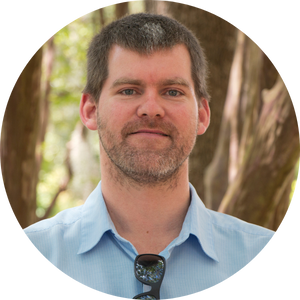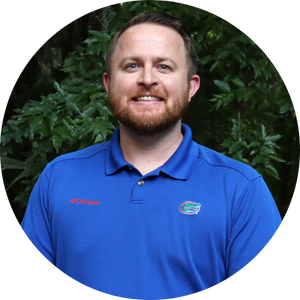Geomatics (GEM) Program
The Geomatics program offers an integrated approach for the study of various geospatial measurement systems and technologies
Geomatics refers to the integrated approach of measurement, analysis, and management of the descriptions and locations of geospatial data. These data come from many sources, including earth-orbiting satellites, air and sea-borne sensors and ground based instruments. It is processed and manipulated with state-of-the-art information technology. Geomatics has applications in all disciplines which depend on spatial data, including forestry, environmental studies, planning, engineering, navigation, geology and geophysics. It is thus fundamental to all areas of study which use spatially related data, such as surveying, remote sensing and photogrammetry, cartography, geographic information systems, property or cadastral studies and global positioning.
Geomatics as a discipline encompasses many fields involved in collecting, managing, analyzing and displaying geospatial information.
The Geomatics program is available at three locations in the state of Florida: on the main campus in Gainesville, at the Fort Lauderdale Research and Education Center (FLREC) or at the Gulf Coast Research and Education Center (GCREC) in Plant City. The Geomatics program has been available at the main university campus in Gainesville — under different names — since 1973 and introduced at the two research and education centers at Ft. Lauderdale and Plant City in 2007 under the statewide geomatics education initiative.
-
History
The Florida surveying industry sparked the creation of the Geomatics program in 1973. During the program’s development period, the surveying profession was and still continues to be of immense support. The program retains geographic distinction as the only full-service Geomatics program in the southeast United States, and is viewed as a program of regional, national and international impact. The program has developed name recognition nationwide through its research program, faculty publishing in journals and faculty participation at national meetings. The strong practice-based undergraduate program has been supplemented with sponsored research activity that finds direction and solution to a wide range of issues.
At the time of its inception the program was housed in the Department of Civil Engineering. In 2004, the program and four faculty members transferred from the College of Engineering to the (former) School of Forest Resources and Conservation in IFAS. Since that transfer, the program expanded substantially. We have: (a) established a distance education approach for the BS degree at UF/IFAS Research and Education Centers in Plant City and Ft. Lauderdale; (b) expanded our geomatics education team to include six full time faculty, two full time instructional designers — geomatics specialists — and one adjunct professor; and (c) increased undergraduate enrollment.
Employers recognize the need to keep up with rapidly changing technology and have enthusiastically employed graduates where available. Historically, students graduating from the program with a Bachelor’s degree receive multiple job offers with attractive starting salaries. Students are placed in a broad range of private sector and government organizations. More than 40% of the graduates own or are partners in their own companies and 75% manage or supervise surveying and mapping personnel, either in the private or public sector. More than 80% of the graduates are registered surveyors in Florida, and Master's or Ph.D. graduates move into academic careers or key leadership positions in government or industry. Achievements of graduates have been the best measure of program effectiveness. UF grads are routinely successful in passing the registration exam. Their advancements through professional and business ranks have been most notable, with UF graduates now helming many firms and GIS/surveying/mapping departments.
-
Related Organizations
Below is a list of organizations and groups involved in the research, education, or practice of Geomatics and related sciences.
Florida Surveying & Mapping Society
National Society of Professional Surveyors
American Society for Photogrammetry and Remote Sensing
International Federation of Surveyors
International Society of Photogrammetry and Remote Sensing
National Council of Examiners for Engineering and Surveying
Royal Institution of Chartered Surveyors
Urban and Regional Information Systems Association
American Association for Geodetic Surveying (AAGS)
American Geophysical Union (AGU)
American Society for Photogrammetry and Remote Sensing (ASPRS)
Asian Association on Remote Sensing (AARS)
Association of American Geographers (AAG)
Broward County GIS Users Group
Bureau of Land Management (BLM) – US Department of Interior
Bicycle Trip Planning in Broward County
Cartography and Geographic Information Society (CAGIS)
Consortium for International Earth Science Information Network (CIESIN)
Ecological Society of America (ESA)
Florida Board of Professional Surveyors and Mappers
Florida Surveying & Mapping Society (FSMS)
Geological Society of America (GSA)
Geospatial Information and Technology Association (GITA)
Geographic and Land Information Society (GLIS)
IEEE Geoscience and Remote Sensing Society (GRSS)
International Glaciological Society (IGS)
International Society for Photogrammetry and Remote Sensing (ISRPS)
Management Association for Private Photogrammetric Surveyors (MAPPS)
National Council for Geographic Education
National Geodetic Survey (NGS)
NOAA Coastal Services Center (NOAA CSC)
National Society of Professional Surveyors (NSPS)
National States Geographic Information Council (NSGIC)
Remote Sensing and Photogrammetry Society (RESPoc)
University Consortium for Geographic Information Science (UCGIS)
-
ABET Accreditation
ABET Accreditation
The Bachelor degree program in Geomatics is accredited by the Applied and Natural Science Accreditation Commission of ABET under the commission's General Criteria and Program Criteria for Surveying, Geomatics, and Similarly Named Programs.
ABET accreditation assures that programs meet standards to produce graduates ready to enter critical technical fields that are leading the way in innovation and emerging technologies, and anticipating the welfare and safety needs of the public.
Mission Statement
The mission of the UF Geomatics Program is to provide its graduates with a modern, high-quality education and to foster their professionalism.
Program Educational Objectives
1. Prepare graduates for gainful employment
2. Prepare graduates for professional licensure and/or certification
3. Prepare graduates for career advancement
4. Prepare graduates for leadership roles
List of General Program Student Outcomes (relative to ABET-ANSAC items 1-6)
(1) An ability to identify, formulate, and solve broadly defined technical or scientific problems by applying knowledge of mathematics and science and/or technical topics to areas relevant to Geomatics.
(2) An ability to formulate or design a system, process, procedure or program to meet desired needs.
(3) An ability to develop and conduct experiments or test hypotheses, analyze and interpret data and use scientific judgment to draw conclusions.
(4) An ability to communicate effectively with a range of audiences.
(5) An ability to understand ethical and professional responsibilities and the impact of technical and/or scientific solutions in global, economic, environmental, and societal contexts.
(6) An ability to function effectively on teams that establish goals, plan tasks, meet deadlines, and analyze risk and uncertainty.
Enrollment Numbers
Year Enrollment (Fall Semester) Graduates 2023 88 7 2022 84 13 2021 66 18 The Florida Board of Professional Surveyors and Mappers has approved the program since its beginning in 1973 for full credit toward Surveying and Mapping registration. The Florida Surveying and Mapping Society has also provided extensive support to the Program.
-
Geomatics GeT-STEM Scholarship
Geomatics GeT-STEM Scholarship
The GeT-STEM project empowers low-income students across the State of Florida to pursue a BSc degree in Geomatics at the University of Florida throughout the 6-year project duration. The project provides financial support as well as a suite of academic and professional development support programs. The project aims to achieve at least a 90% post-graduation (within 6 months) employment rate, with the following three objectives:
- Increase the enrollment of Geomatics STEM students in a Geographically Distributed Education System.
- Equip transfer Geomatics students to professionally develop in the program and obtain Geomatics employment.
- Increase scientific knowledge through evidence-based study of the factors (including adopting a blended geographically-distributed education system) affecting Geomatics technology education recruitment and retention of transfer students.
The project builds on the existing geographically–distributed blended Geomatics education system at the University of Florida, which delivers the program at the main campus in Gainesville, FL as well as at two locations close to the largest population centers in the state. The project recruits transfer students from community and state colleges who acquire their two-year Associate of Arts degree and students transitioning into upper division at the University of Florida to complete their BSc in Geomatics. Co-curricular activities, intensive advising, student mentoring, and professional development activities are among the support provided by the project. The project also enriches the Geomatics technology and general STEM education knowledgebase by conducting a longitudinal study on the students as they transition from their 2-year program into their junior and senior years of the Geomatics BSc degree program.









